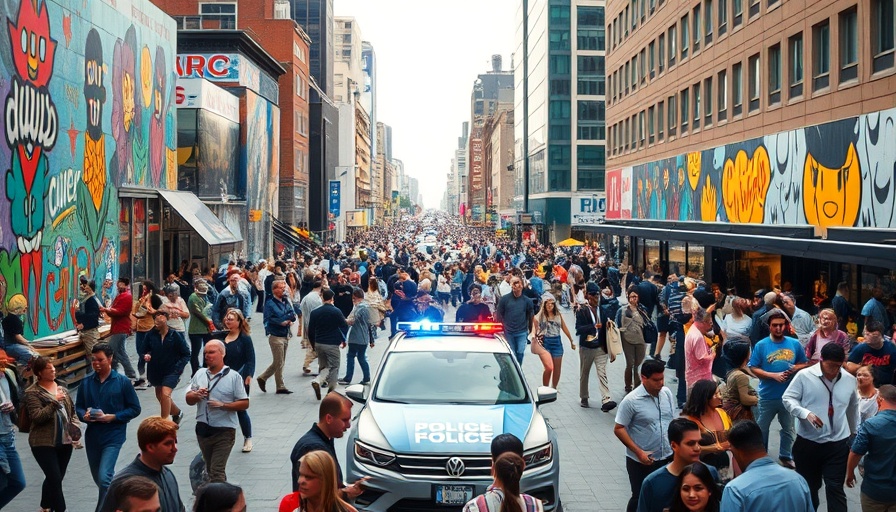
Drug Busts: A Temporary Fix for San Francisco’s Ongoing Issues
As San Francisco strives to combat its drug crisis, the recent police action—a noteworthy operation that claimed to be one of the largest in the city’s history—seems to have yielded limited observable changes in the Mission District. Last week, 97 arrests were made in a move targeting fugitives, leading to the seizure of key narcotics including fentanyl, cocaine base, and methamphetamine, all while efforts to address this crisis continue amid community unrest.
The Reality on Mission Street
The scene on Mission Street, shortly after the drug bust, tells a complicated story. Unpermitted vendors still dominated the area as people streamed from the 16th Street BART Station to join weekend festivities like the Dyke March at Dolores Park. Residents and onlookers reported that while the sidewalks were initially clearer and cleaner during the morning hours, the influx of crowds by midday quickly reverted to the usual hectic atmosphere.
Despite authorities’ optimism regarding the arrests, many locals feel that these enforcement actions are more about optics than genuine change. By noon on the day of the bust, drug use and vending were again prevalent, highlighting a key concern: Are these measures merely surface-level solutions to a deeper, systemic issue?
Community Voices in a Complex Situation
Parents and residents expressed discomfort with the continuous presence of drug users and unregulated vendors in their neighborhood. "It feels like we’re just going in circles," one local mother shared, emphasizing the need for sustainable solutions rather than reactive measures. In a place like San Francisco, where the intersection of culture and public safety often creates tension, community perspectives are vital to understanding the full scope of local issues.
Shifting Perspectives on Drug Enforcement
There’s an ongoing debate regarding the efficacy of these large-scale drug busts. Some community advocates argue that policing alone will not eradicate drug issues, suggesting more comprehensive approaches that address the societal and economic factors fueling addiction. From access to mental health services to job training programs, experts advocate for a holistic view to societal reform that surpasses policing efforts.
Future Trends in Public Safety Initiatives
Moving forward, stakeholders must explore broader community initiatives aimed at improving public safety while also considering the nuanced needs of the population. As crime and drug issues swell and recede, the conversation must evolve from short-term arrests to long-term solutions that foster community development and individual recovery.
Concluding Thoughts and Community Engagement
San Francisco is at a crossroads, with drug-related challenges requiring urgent attention. But as parents and locals experience the ever-present struggles within Mission Street, it raises a poignant question: What kind of city do we want to be? Community engagement becomes essential in navigating these dilemmas as residents must band together to push for more than just reactive policing.
We urge you to stay connected and informed about ongoing discussions around community safety and development in San Francisco. Engage with local efforts and initiatives aimed at sustaining positive change in your neighborhoods.
 Add Row
Add Row  Add
Add 




 Add Row
Add Row  Add
Add 

Write A Comment